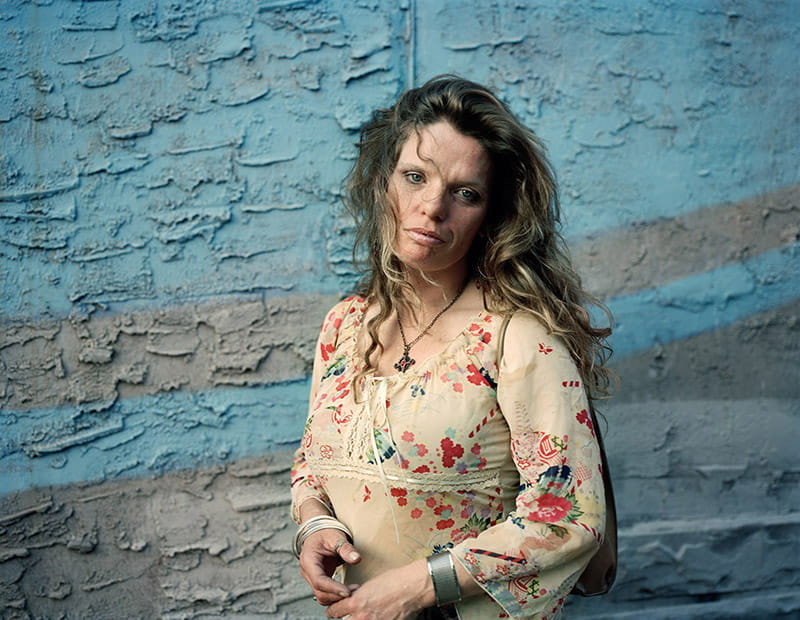Jeffrey Stockbridge, ’05
A lot of people are talking about opioid addiction these days. But there aren’t many who are listening. Jeffrey Stockbridge, BS '05, has spent the last ten years doing just that.
Using a large format camera, audio recording equipment and a journal, Stockbridge has documented daily life on Kensington Avenue in North Philadelphia — ground zero for the city's drug trade and less than a 30-minute drive from Drexel's main campus.

Stockbridge grew up in Woodbine, Maryland, a small town 30 min west of Baltimore, where he witnessed people close to him get lost in drugs. He counts himself lucky to have found his passion in life early, and to have won a scholarship that allowed him to earn a Bachelor of Science in photography at the Antoinette Westphal College of Media & Design.
His senior thesis photography project, "Homegoing," was a four-year endeavor that took him into hundreds of abandoned houses in and around West Philadelphia. In the process, he met addicts and others living on the fringe of society.
“At first I thought these people were in the way of my work — I was focusing solely on architectural interiors… and I was kind of scared of them,” he says. "But I was really just scared of the unknown. As soon as I got to know the people I was coming in contact with, everything changed.” At that point, a new project was born: "Kensington Blues.”
First a blog and then a book, "Kensington Blues" offers an unflinching, deeply compassionate look at the human beings drawn to the neighborhood’s plentiful supply of cheap, high-quality heroin. The photographs and interviews have drawn attention from public health officials and politicians, as well as art collectors and gallery owners.
"I think that art is extremely effective at communicating the humanity behind things," says Stockbridge. "Ultimately my work is about human qualities and relating to each other on a fundamentally human level. And rallying public support for ideas and issues that matter."
These unmistakable portraits have been shown in the Philadelphia Museum of Art and the Portrait Gallery of London. In March 2018, the BBC aired an interview with Stockbridge in which he explained how he was trying to challenge the stigma of drug abuse and homelessness with his project.
"I think…the act of storytelling in general is one of society's most powerful tools to create social change. It's totally part of the plan to try to create social change, try to make the world a better place."
“These people were telling me things that are just heartbreaking, so personal and intense. I think that talking to me and recording their story.”
Ultimately my work is about…rallying public support for ideas and issues that matter.
Stockbridge runs a commercial photography business to finance his book and other projects, and he is donating 10 percent of the proceeds from "Kensington Blues" to Prevention Point Philadelphia, a harm-reduction center on Kensington Avenue.
More recently, Stockbridge has turned his focus to stories of recovery. His new blog, "Kensington Blues, Your Story," invites people to share their experiences with him via email. "Whether you are currently battling an addiction, in recovery, never touched the stuff, a friend or family member of someone who is or was using… Your story counts," says the blog.
“There are powerful stories out there,” say’s Stockbridge. “I think it’s important for people to hear that it’s possible” to start over.
Support the Westphal College of Media Arts & DesignContact Us
215.895.2612
giving@drexel.edu
Mail your gift to
Drexel University
P.O. Box 8215
Philadelphia, PA 19101-9684